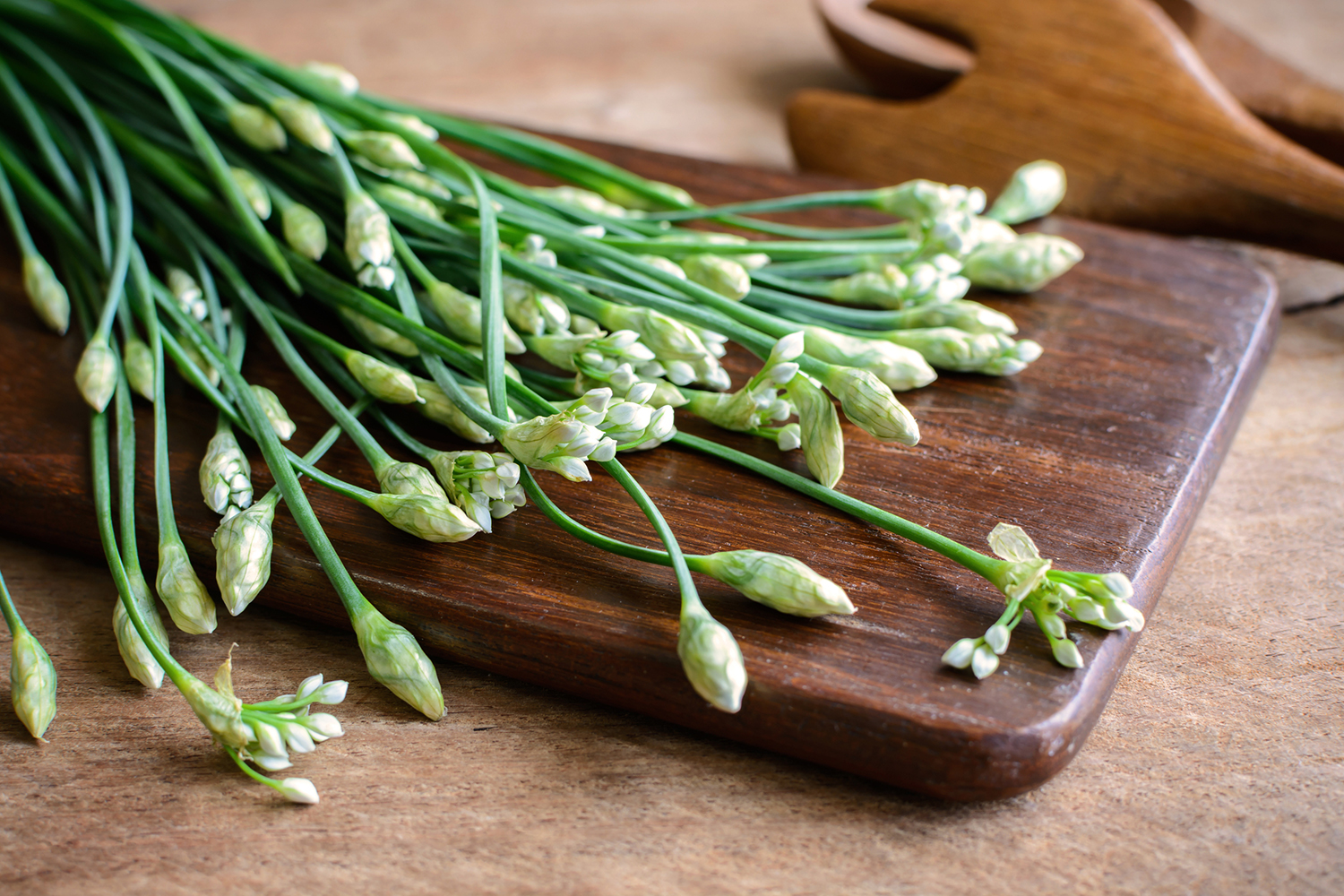Even if they haven’t been formally introduced, most people know members of the allium family.
This versatile group of aromatic vegetables includes onions, scallions, and shallots (as well as chives, garlic, and leeks).
How do these pungent veggies differ from one another, and how are they used in cooking?
Members of The Allium Family
-
Chives
A petite member of the allium family, chives are delicious and easy to grow.
If you put a chive plant in your garden, be prepared to divide it regularly or it may take over, crowding out other plants.
Common Uses
Popular in French cooking, chives often garnish potato soups, omelets, and other dishes that benefit from their fresh green zing.
The purplish flowers also are edible; you can use them to dress up a cheese plate or fish dish.
-
Onions
One of the basic ingredients in many a kitchen, onions range in size from tiny to baseball-sized, and in color from white through yellow to purple and brown.
Common Uses
Raw onion lends itself to use in salads and, finely minced, in dressings and sauces.
Cooked as the flavor foundation of soups, stews, and casseroles, onion also stars as the main ingredient in onion soup and onion tart.
-
Ramps
This member of the onion family is a spring wildflower found in forests in the eastern United States and known in some areas as ramson, spring onion, or wild leek.
Common Uses
Upscale restaurants serve ramps for its garlicky aroma and onion flavor.
Both the leaves and the white parts of the stalks are edible, giving ramps the spotlight in regional cuisines, especially in Appalachia.
-
Scallions / Green Onions
There’s some controversy among food experts around what, exactly, scallions are.
“In many parts of the country, they’re called green onions or spring onions,” according to Melissa Clark, a food writer for the New York Times.
“Spring onions” are early onions on their way to becoming regular, full-sized onions, adds cookbook author Stacy Ballis, who notes that the terms “scallions” and “green onions” refer to the same vegetable.
She suggests finding out what they are called in your part of the country.
Common Uses
Salads and salsas are two uses for raw scallions, and nothing beats a drift of chopped scallions atop a mound of nachos.
They add an aromatic, pungent note to anything they’re cooked in, and Clark says “they are often paired with garlic and ginger and make up the foundation of myriad [Asian] dishes.”
The white bulbs have more of an onion taste; the green parts taste more like chives.
-
Shallots
Although they are clearly related, these members of the allium family have a more delicate flavor than onions and are less sharp than garlic.
Common Uses
Widely used by French cooks to flavor sauces, shallots also shine in Asian and Creole cuisines, and add a special flavor when used, finely chopped, in salads or to garnish cooked dishes.
Shallots can pinch-hit for onions in almost any recipe; substitute them ounce for ounce.





